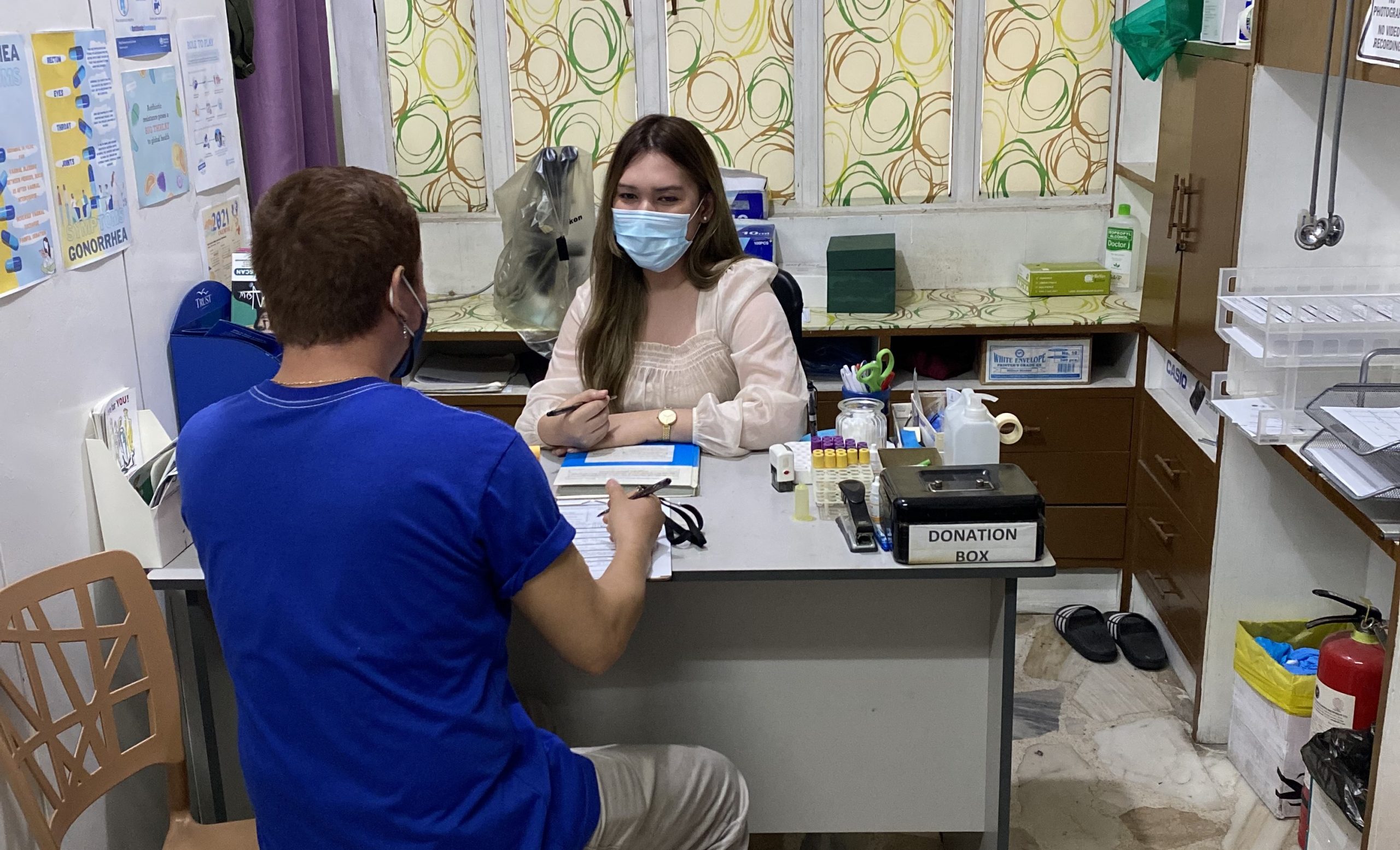
IT WAS supposed to be an ordinary day treating patients as a nurse—but that day was different. It was the first time Bubbles Rosos met Champ*, a patient who tested positive for HIV who was hesitant about the treatment because of the side effects.
According to Rosos, Champ’s firm choice to refuse treatment was challenging because his condition needed immediate care. Serving as Champ’s counselor at the same time, Rosos convinced him to undergo treatment. Visit by visit, together with the patient’s mother, the hospital staff did everything to encourage him.
It was difficult, according to Rosos. But eventually, Champ decided to give treatment a chance.
Days passed, and Rosos noticed that Champ was starting to smile again.
“I was so happy when I saw him getting better. His aura began to change,” Rosos said.
Ensured that other patients were well, Rosos decided to temporarily veer away from the organization to focus on other hospital work.
Rosos eventually returned to Love Yourself and looked for Champ. Sadly, the nurse’s co-workers broke the news that he succumbed to the disease.
Rosos was devastated by the news.
“Somehow, you need to improve yourself more. We need to improve our system, and we need to improve our services for the better,” Rosos reflected.
Lagging Behind
According to Rosos, the country’s healthcare system is lagging behind in HIV/AIDS treatment and prevention. However, the longtime nurse is still hopeful for better care for the ones who tested positive, giving in example the pre-exposure prophylaxis (PrEP) medication.
The PrEP medication was made possible with the help of Love Yourself, a community-led non-profit organization focused on free-testing, treating and counseling HIV positives.
Rosos noted that aside from treatment, they also spread HIV/AIDS awareness through social interactions in hopes of prevention.
“We have community champions, where there are community-based organizations with the different parts of the Philippines to spread more awareness around the community about HIV in the Visayas and Mindanao regions,” the nurse added.
Rosos also shared that there are community centers where condoms are free, such as the “Love Yourself Welcome” at España and “Athena by Love Yourself” at Caloocan.
These kinds of services are what makes Rosos hopeful despite a healthcare system that is lagging behind in preventing and treating HIV/AIDS.
Embracing new narratives
“HIV/AIDS has been stigmatized long enough. It makes the disease look far worse than what it really is,” the nurse said.
Rosos believes that the stigma is what keeps people from engaging in treatment and healthy discourse about HIV/AIDS.
“If we have the time to stigmatize something that should not be stigmatized, then maybe we can also find the time to learn more about this disease [instead],” Rosos said.
As an HIV/AIDS treatment nurse, Rosos believes that being there for the patients is good, but being one with them in this journey would be better.
“Healthcare workers and volunteers must not forget that no matter how difficult this line of work may give them, they must not forget to consider the patient,” Rosos said
“Treat them holistically. It’s not just all about being a healthcare provider—we should also be an advocate for them.”
‘It will be alright’

In these times, testing positive for HIV or AIDS might be the worst thing that could ever happen. It would feel like it’s the end. But is it really the end?
“It is not,” Rosos said. “This may be a difficult pill to swallow, but this is just a phase in one’s life. This may be a life-changing event but just hold on, it will be alright.”
Imparting a message to those who tested positive, Rosos said with full optimism, “There is still life after testing positive for HIV. It doesn’t end there. Life doesn’t end there.” F – Jan Oliver Malicse
Editor’s note: The patient’s real name was hidden to protect his identity.



